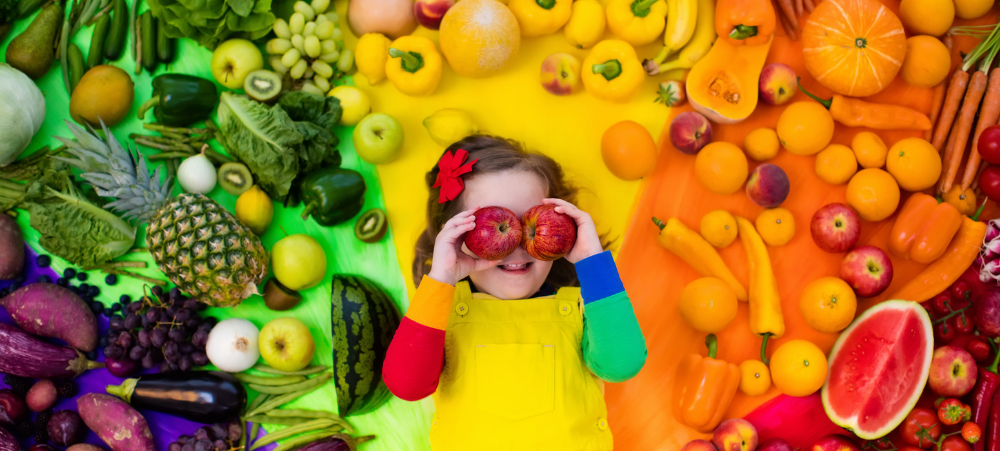It’s something to celebrate when your tiny tot tastes something other than formula or breast milk for the first time. But often, the overload of information makes parents fearful of starting solids. Go with your gut and take your cues from your kiddie. If they’re old enough and face-planting into your plate to try to share your lunch, it’s usually a sign they’re ready! Here are some simple tips for a solid start to solids.
Nadia Jansen van Rensburg, co-founder of Rooted Natural and a clinical dietitian with a special interest in paediatric nutrition, says, “We started Rooted Natural because we wanted children to have a healthy relationship with food right from the get-go. It’s natural for parents to be preoccupied with whether their little ones are eating well. But it can become an unhealthy obsession very easily, which means missing out on the joy of the experience.
“The best advice is to be relaxed and let your baby lead the process. Repeated exposure of as many tastes, textures, smells and colours as possible. We eat with all our senses!”
Here are van Rensburg answers parents’ most pressing questions when it comes to solids:
When should I start solids?
It’s different for every child. From four to six months, infants are developmentally and emotionally ready to start exploring a new method of feeding – and new foods, flavours and textures. Their nutritional needs increase and the introduction of solids helps to optimise growth and brain development. Plus, more energy from food supports their increasingly active bodies as they begin to sit, play and crawl. It’s a wide window period, so take your cues from your little one. They need to be able to sit with minimum support and have good head and neck control.
Children often show you when they’re ready by grabbing at food, and sucking their lips or opening their mouths when morsels are nearby.
How do I set the scene for success?
It’s a great idea to get into regular feeding rhythms right from the start. Sit your little one at the table in a chair or in a chair with a clip-on tray and make sure their feet are supported. Avoid screens and any distractions. Try to get them excited about the food – its taste, textures, colours and smells! Positively talking about food is an important part of the process.
Allow them to play! Play is a pivotal part of children’s learning process so let them have fun with their food. That’s how they’ll learn to eat by themselves.
Time it well. Your baby should be rested, hungry and interested; not overly hungry, overtired, stimulated or fed. Importantly, you need to be relaxed as well.
Go with a single flavour at first. Think about starting with vegetables, then progressing to fruit, grains and protein combinations.
Should I do the puree or baby-led weaning approach?
That’s up to you! The more traditional take is for first foods to be smooth, soft purees, then there’s a progression to textured purees and, eventually, whole meals. The latest trends and research are seeing parents include the baby in the meal – e.g., if they reach for a whole broccoli stem, let them try it. There’s no right or wrong! We recommend combining the two methods. This way, you ensure adequacy, but baby also gets to play, participate and explore, which fuels tactile development. Remember, the bigger the mess, the higher the success!
Van Rensburg concludes, “Our Rooted Natural brand was designed to bring fun to the feeding process, with wholesome, sugar-, salt- and preservative- free foods that let children play with new tastes and textures. Healthy kids are happy kids. I’m a dietitian and my co-founder, Kirby, is a professional chef. We combined our love of food to create a range of organic, earth-friendly baby and toddler food that takes the stress out of solids.
“We encourage you to relax and enjoy this new chapter. It’s a beautiful, exciting one. Most importantly, you’ve got this. You’re a brilliant parent. Go with your gut and learn with your little one.”
For more information on Rooted Natural, visit RootedNatural.co.za or follow on Instagram and Facebook.
We understand that there are many aspects that encompass a Mother, Father or Child and strive toward providing resources and services that accommodates this.
Our content is aimed to inform and educate families on issues starting from pregnancy through to the challenges of the teen-age years.
- Tiny Toons Looniversity Returns: Meet the Voice Behind Plucky and Hamton! - December 12, 2025
- From Pain to Possibility: Panado®’s New Marketing Campaign, Highlights The Joy Of Pain Relief - December 10, 2025
- Feeding Unicorns by Jeni-Anne Campbell: A bold new book for business leaders who care - December 9, 2025





